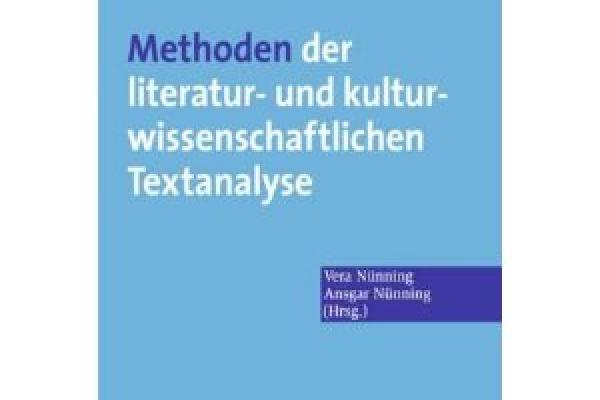
Ansgar Nünning
"Narratology in (the Age of) Crisis: The Worldmaking Power of Narratives as a Challenge and Chance for a Culturally-Sensitive Narrative Theory"
Taking its cue from both Nelson Goodman's Ways of Worldmakingand recent work on narratives as cultural ways of worldmaking, the lecture pursues three main goals: first, it will try to gauge the complexity of narrative worldmaking by focussing on those areas and issues that Goodman (deliberately) left out, making a modest attempt to translate and extend the Goodmanian approach into the theory and study of narrative. Secondly, it will argue that, in an age of crisis (or rather crises), narratology has so far not only failed to come to terms with the proliferation of crises narratives in various domains, its premises and concepts are also challenged by such emergent kinds of narrative as broken narratives, crises narratives and fragmented novels. Thirdly, an attempt will be made to delineate and discuss some of the main premises and concepts for a culture-sensitive narrative theory (for convenience sake dubbed "cultural narratology") that would be equipped to address, and come to terms with, those areas that narratology has excluded ever since it was invented, viz. contexts, history, values, and worldviews. The presentation will be rounded off with some hypotheses about the performative functions that narratives and storytelling in various domains can fulfil, including e.g. the dissemination of norms and values, and the making of communities, conflicts, wars and worlds.
Ansgar Nünning is Chair of English and American Literature and Cultural Studies at Justus-Liebig-University in Giessen. He is the founding and managing director of “International Graduate Centre for the Study of Culture” (GCSC), funded by the Excellence Initiative and inaugurated in 2006, and of the European PhD Network “Literary and Cultural Studies”. He has published widely on English and American literature, cultures of memory, the theory and study of narrative, and literary and cultural theory, including 15 monographs, 50 edited volumes, and more than 200 scholarly articles in refereed journals and collections of essays.
Vera Nünning
"Narrative Fiction and Cognition: Why We Should Read Fiction"
During the last decade or so, psychologists and neuroscientists have arrived at fascinating insights into the cognitive potential of fiction. Reading fictional stories, it can now safely be assumed, is more than just a pleasurable pastime; it has serious consequences. Since literary scholars have so far been reluctant to engage in the debate, we as yet know very little about possible links between cognitive effects and particular kinds of stories, narrative conventions or aesthetic devices. This lecture will provide a first overview of this field. Though it concentrates on the benefits of reading fiction, the corresponding dangers will be mentioned, too. The exploration of these dangers also forms a part of the brief delineation of future fields of research which are opened up by taking the power of fiction seriously.
Vera Nünning is Chair of English Philology at Heidelberg University. She is co-editor of the journal English Studies as well as of several book series. As vice president of the German Consortium of the Turkish German University in Istanbul she is responsible for the faculty of humanities. She has published widely on English literature, particularly on the novel, on the links between culture and literature, and on cultural as well as narrative theory. Her publications include 9 monographs, 21 collections of essays and about 130 scholarly articles in refereed journals and collections of essays.
